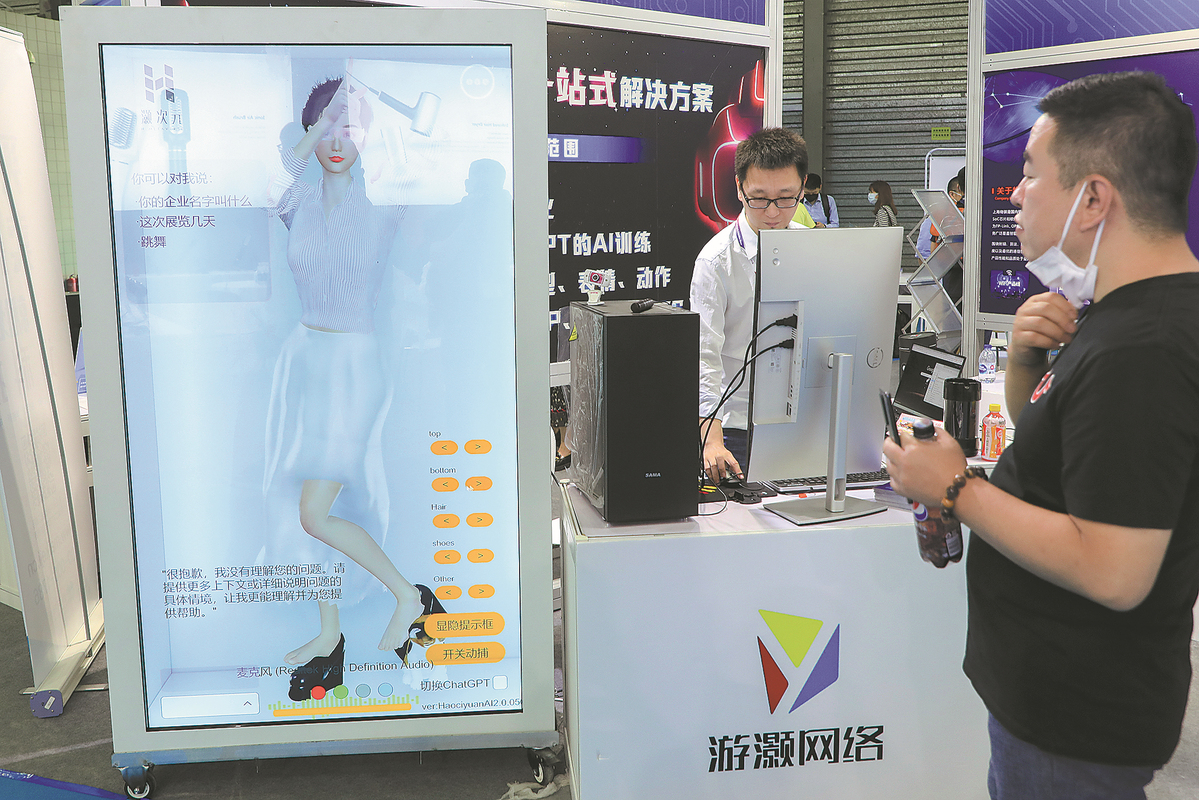AI revolution: Friendly makeover or hostile takeover?
A technology few had heard of until relatively recently suddenly became mainstream in the past year
By Yang Ran and Liu Jianqiao | China Daily | Updated: 2024-01-01 07:34

Competitive edge
Zhang said: "The year 2023 has been a breakout one for AI regulation. The primary reason for this is the emergence of generative AI, which overturns the regulatory frameworks previously established based on narrow AI designed to perform a specific task. Generative AI can be applied to various settings, which means its risks are inherently dynamic, and calls for new regulatory frameworks.
"The race for AI regulation is also fueled by the recognition that those who possess the ability to exert greater influence in shaping global AI governance and formulate more compelling regulations will secure a competitive edge in the global AI arena.
"For example, in the previous round of regulation on social media, the European Union reaped many regulatory dividends through what has been called the Brussels effect."
Zhang's views are echoed by Zhang Linghan, a professor at China University of Political Science and Law's Institute of Data Law in Beijing. She said that in the relatively uncharted territory of AI governance, countries that act fastest can gain greater influence and even wield certain authority in setting key standards.
However, Zhang Linghan said the lack of global consensus on AI governance has led to variations in legislative goals and technical standards in different countries, posing challenges for collaboration on global governance.
"AI risks can spread through the internet and transcend national borders. Any country that uses AI technology or AI-generated content cannot isolate itself from the risks posed by AI to humanity as a whole," Zhang Linghan said.
As part of the Bletchley Declaration on AI safety signed at the first global AI Safety Summit, 28 countries and the EU agreed on the need for regulation and a new global effort to ensure AI is developed and used safely and responsibly. But what should be done and by whom remain open to debate.
With strategic technological competition for AI supremacy under consideration, the ways in which governments collaborate in practice to ensure AI safety remain a challenging issue.
Zhu Rongsheng, an expert from Tsinghua University's Center for International Security and Strategy, said that in promoting consensus on AI global governance, one of the obstacles is the choice between genuine multilateralism and pseudo-multilateralism.
"Genuine multilateralism is based on the United Nations framework, with the UN at its core, while the rules that are shaped by certain countries relying on their alliances are the products of pseudo-multilateralism," Zhu said.
"Since World War II, the UN has served as a pivotal international governance platform, uniting countries worldwide. It stands out as the most fitting platform for countries with shared concerns to collaborate and voice their opinions, which ensures wide representation and a governance plan that reflects international concerns and consensus."
























